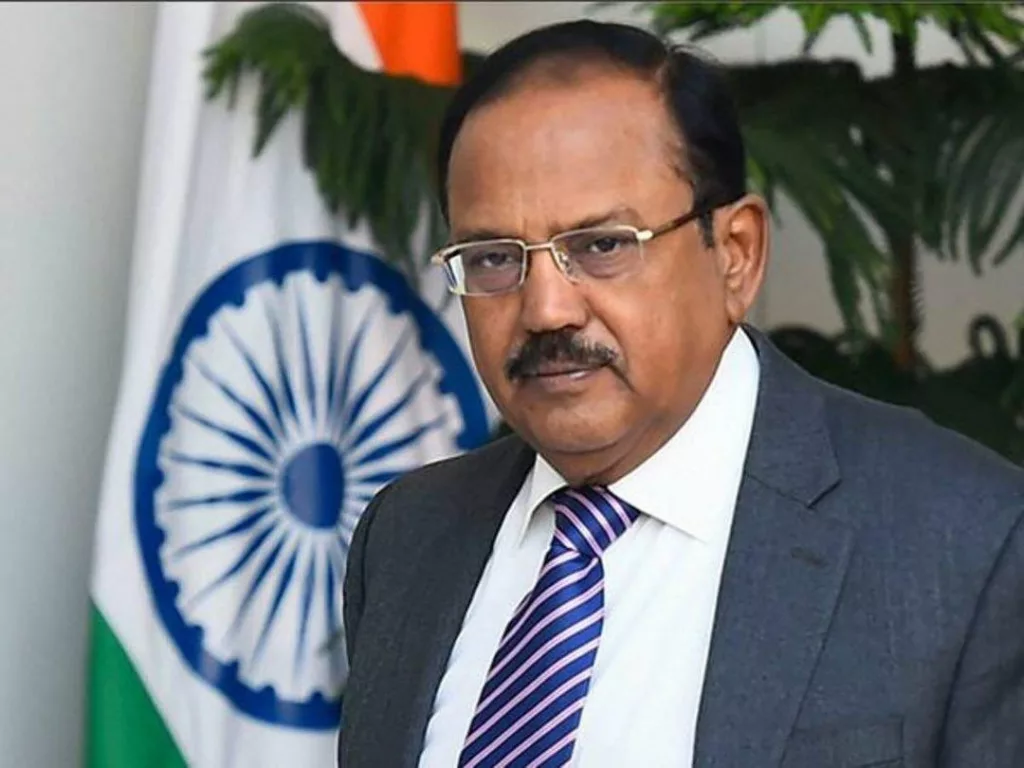After a gap of five years, India and China will hold the Special Representatives dialogue on the boundary question in Beijing on Wednesday, December 18, and India’s National Security Advisor Ajit Doval will lead the Indian delegation at the talks.

India’s Ministry of External Affairs (MEA), making the announcement on the Special Representatives (SR) dialogue, said the two sides will discuss the management of peace and tranquility in the border areas and explore a “fair, reasonable and mutually acceptable” solution to the boundary question.
“Ajit Doval, National Security Advisor and India’s Special Representative (SR) on the India-China boundary question, will hold the 23rd meeting of the SRs in Beijing on December 18 with his Chinese counterpart Wang Yi, Member of the Political Bureau of the Communist Party of China (CPC) Central Committee and Minister of Foreign Affairs of China,” it said in a late night statement.
The last round of SR dialogue was held in New Delhi in December 2019.
The decision to revive the dialogue mechanism was taken at a meeting between Prime Minister Narendra Modi and Chinese President Xi Jinping in Kazan on October 23, two days after India and China firmed up a pact for disengagement in Demchok and Depsang in eastern Ladakh.
ALSO READ: Indian soldiers begin patrolling in Ladakh’s Demchok after border disengagement with China
In their diplomatic talks on December 5, India and China prepared for the upcoming SR dialogue.
While India’s Special Representative for the dialogue is NSA Doval, the Chinese side is headed at the talks by Foreign Minister Wang, who is also a member of the Political Bureau of the Communist Party of China.
There was no SR dialogue in the last five years in view of the eastern Ladakh border row.
The military standoff along the Line of Actual Control (LAC) in eastern Ladakh began in May 2020 and a deadly clash at the Galwan Valley in June that year resulted in a severe strain in ties between the two neighbours.
The face-off effectively ended following completion of the disengagement process from the last two friction points of Demchok and Depsang under an agreement finalised on October 21.
Two days after the pact was firmed up, Modi and Xi held talks on the sidelines of the BRICS Summit in the Russian city of Kazan.
In the nearly 50-minute meeting, the two sides agreed to revive several dialogue mechanisms including the Special Representatives dialogue on boundary question.
On his part, Modi underscored the importance of properly handling differences and disputes and not allowing them to disturb peace and tranquillity in border areas.
The prime minister said mutual trust, mutual respect and mutual sensitivity should remain the basis of the relations.
India has been maintaining that its ties with China cannot be normal unless there is peace in the border areas.
Following completion of the disengagement process in Demchok and Depsang, Indian and Chinese militaries also resumed patrolling activities in the two areas after a gap of almost four-and-a-half years.
In a statement in Lok Sabha on December 3, External Affairs Minister S Jaishankar said India is committed to remaining engaged with China to find a fair and mutually acceptable settlement of the boundary issue but made it clear that its ties with Beijing will be contingent upon strictly respecting the sanctity of the Line of Actual Control and adhering to the pacts on border management with no attempt to unilaterally alter the status quo.
ALSO READ: India-China ties moving in the direction of improvement, says EAM Jaishankar in Lok Sabha
The disengagement of troops has been achieved in “full” in eastern Ladakh through a step-by-step process, culminating in Depsang and Demchok, and India now expects the commencement of talks on remaining issues that it had placed on the agenda, he had said.


